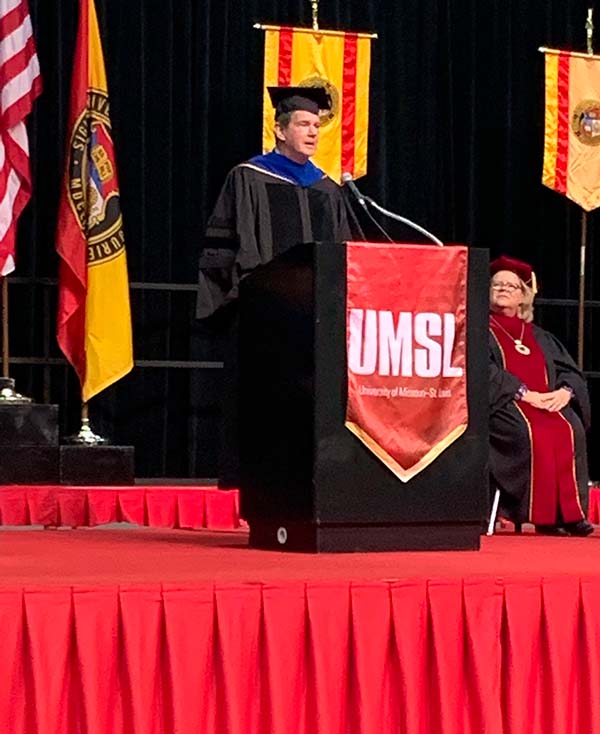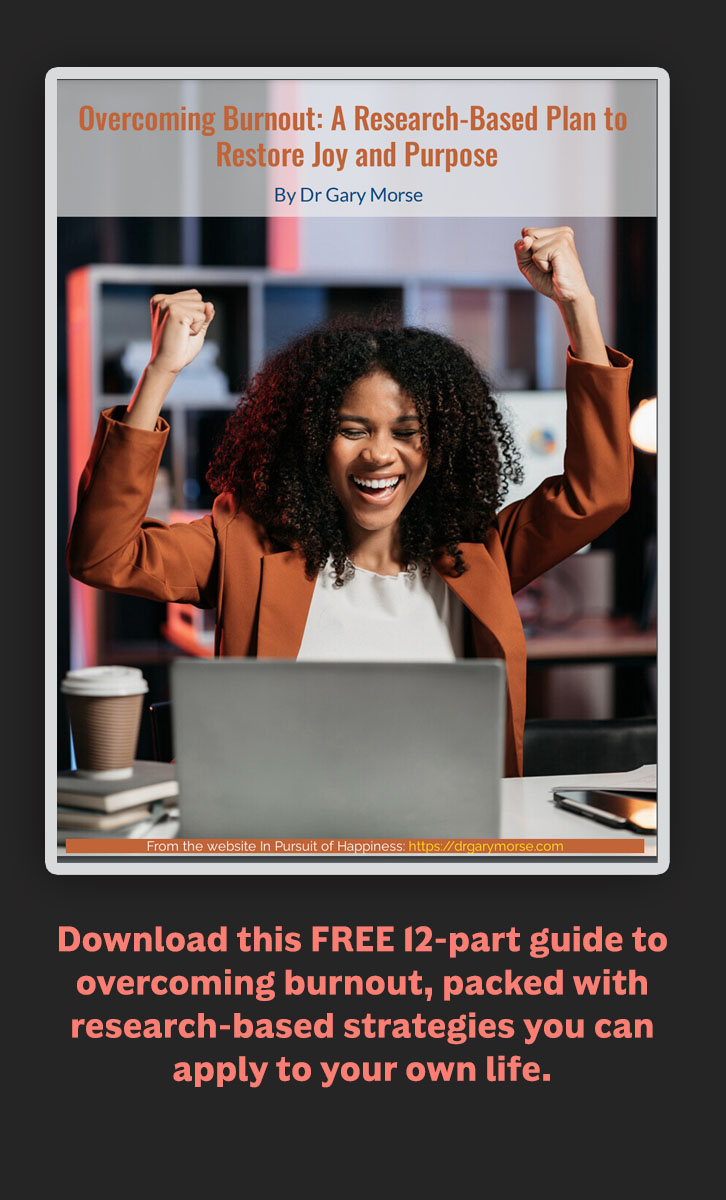[Note: This is Gary’s Commencement Address to the College of Arts and Sciences at University of Missouri-St. Louis, delivered May 13, 2023]
Thank you, Chancellor Sobolik, Provost Berberich, Dean Grady, and Dean Munn Sanchez for today’s invitation.
My graduate school years at UMSL constitute a cherished chapter in my life. UMSL helped me to grow professionally and personally, and provided knowledge and relationships that have helped sustain me for decades.
It is a privilege and an honor to talk with you, the faculty, the assembled family and friends, and especially you, the graduates.
Graduation is the capstone to a long road of schooling.
Remember Your Journey
Do you remember where your educational journey began?
There is an old photo of my Tiny Tots class, a pre-Kindergarten program, circa 1961. My teacher was in the front of the class, reading a book, as most of the children formed a semi-circle close in front of her. Back a ways, were a few small groups of kids, and then at the very back of the room, alone and next to the door leading to the room of waiting mothers, was me.
I was painfully shy as a child—undoubtedly in part because of my dependence on my mother, a good woman who struggled mightily with severe depression and overwhelming anxiety.
My situation came to a head about a year-and-a-half later when in first grade I cried every day.
My teacher asked: “What’s wrong?”
“I miss my mom,” I said.
The teacher, her patience worn thin, then instructed the entire class, “Let’s all cry like Gary. Boo-hoo, I miss my mommy.”
And so the class did.
If you had told me then that I would spend the next 22 years of my life in school, I would not have believed you. After that humiliation, I didn’t even want to finish first grade.
But I did.
My point in sharing that story is to acknowledge that each of us has faced challenges on the road to graduation. My challenges were not so great. Many of you have faced greater difficulties.
But you overcame them.
That makes your success today even sweeter.
And it illustrates: you demonstrated personal strengths and resilience.
Identify Your Strengths and Resilience
What strengths have you used?
Remember them, for life at times will again challenge you. But you can draw upon your strengths, your resilience, and succeed.

Photo 37038733 © Hongqi Zhang (aka Michael Zhang) | Dreamstime.com
However, you probably haven’t achieved success all by yourself. Who has supported you through the years? Some of them are probably here today. Take a moment now, and consider how you can later express your appreciation.
Preparing for today, I remembered my first college graduation, a BA in journalism. I realized that was 45 years ago, which immediately triggered two insights.
The first: Wow, I am now really old.
Second: Life passes very quickly.
The Most Important Exam Question
The second insight begs a question, one arguably more important than any of the thousands of exam questions you have answered: How shall you live your life? Or, even more to the point, how can you live your life well and be happy?
Life asks each of us that question. But it is pressing now because graduation is a pivotal inflection point in life and because many people are not happy. Happiness in America has diminished steadily since the 1950s even as a plethora of problems, including depression, anxiety, and substance disorders have increased.
Ultimately, each of us needs to craft a personal answer to the question of how to live well and be happy. But I offer you five major suggestions, based on research and experience.
Five Strategies for Happiness
ONE: Keep learning and keep growing.
That may not be exactly what you want to hear after years of schooling, but life-long learning is critical for growth and happiness. Learning, however, is not limited to textbook knowledge. Learn on the job, including from coworkers–and from mistakes, which we all make. Those lessons are important for success.
So is learning about emotional intelligence—which involves understanding and handling your emotions and those of other people.
TWO: Know that you matter.
Many of us grew up hearing social messages that make us doubt our value, our abilities, and cause us to shrink from life’s opportunities. Often we are afraid of the unknown, or failure, or even, as Marianne Williamson put it, our own greatness.
Instead, believe in yourself and your potential. Do what you love and follow your own sense of purpose—which can be about more than the money, material possessions, and popularity with which our culture is obsessed.
In the process, take care of yourself, for life has its share of stresses, disappointments, and losses. Burnout has reached epidemic rates and learning to take care of your well-being is more important than ever.
THREE: Remember everyone else is important, too.
My training afforded me the opportunity to work closely with a range of people, from homeless individuals with schizophrenia to corporate CEOs. People differ in their talents and resources, but we are more similar than different.
Every person knows pain, and everyone has hopes for love and happiness. If we look closely, beyond the differences, beyond the scars from trauma and illness, beyond even bad habits, we can see strengths and goodness in every individual.
We may even be able to witness, as Mother Teresa suggested, the divine in even its most distressing disguises.
And allow yourself to connect with others, not only for their well-being but for yours, for human connections are one of the most important ingredients for a lifetime of happiness.
FOUR: Be a force for good.
The world is full of beauty and goodness, but it is also replete with suffering, from hunger to homelessness, rampant violence to climate change, and a plethora of other problems.
Strive to make a positive difference. The world needs you—your dreams, your energy, your goodness.
Perhaps you will contribute in a way that is recognized by thousands of people. Perhaps not. But in any case, remember that even brief statements of gratitude and simple acts of kindness help others while increasing your own happiness. And, as Leo Tolstoy said, the most important person is the one right in front of you.
FIVE: Love.
Researcher Richard Layard wrote that the single greatest denominator in happiness is love. Love is one of those remarkable resources that enhance both the receiver and the giver. Love your family, love your friends. Expand your heart and see how many people you can love through deep caring, compassion, and acceptance.

A Wish For Graduates (and Everyone)
As my time with you ends, I offer you my wish:
That you live a big life.
By big life, I don’t mean that you buy a supersized SUV or a sprawling mansion,
But rather that you live with:
Open minds
Full hearts
While remembering that You matter
And so does everyone else.
So live with courage and embrace the world
In all of its pain
And possibilities.
Make a positive difference.
Love others
Love yourself
Love life
And find joy.
In closing
I close now by celebrating
You
Your accomplishments
And your possibilities.
Congratulations
And thank you.

Photo 66881974 © Rawpixelimages | Dreamstime.com
Top photo: 141017420 © | Dreamstime.com



Let’s all clap like Robert 👏😀
Gary that sounded like a guy with a degree in journalism. 👍 That speech had a lot of heart and wisdom.
Thanks Robert! i had a good journalism editor my junior year way back in high school!
Gary I just came across your Speech and have read it over several times!! I’m so glad you gave this BEAUTIFUL, THOUGHTFUL, and MEANINGFUL GIFT to UMSL graduates!!! 👍😍👍
Thank you, Susan for your thoughtful and kind comment–and for being a wise, caring, and talented UMSL grad yourself!